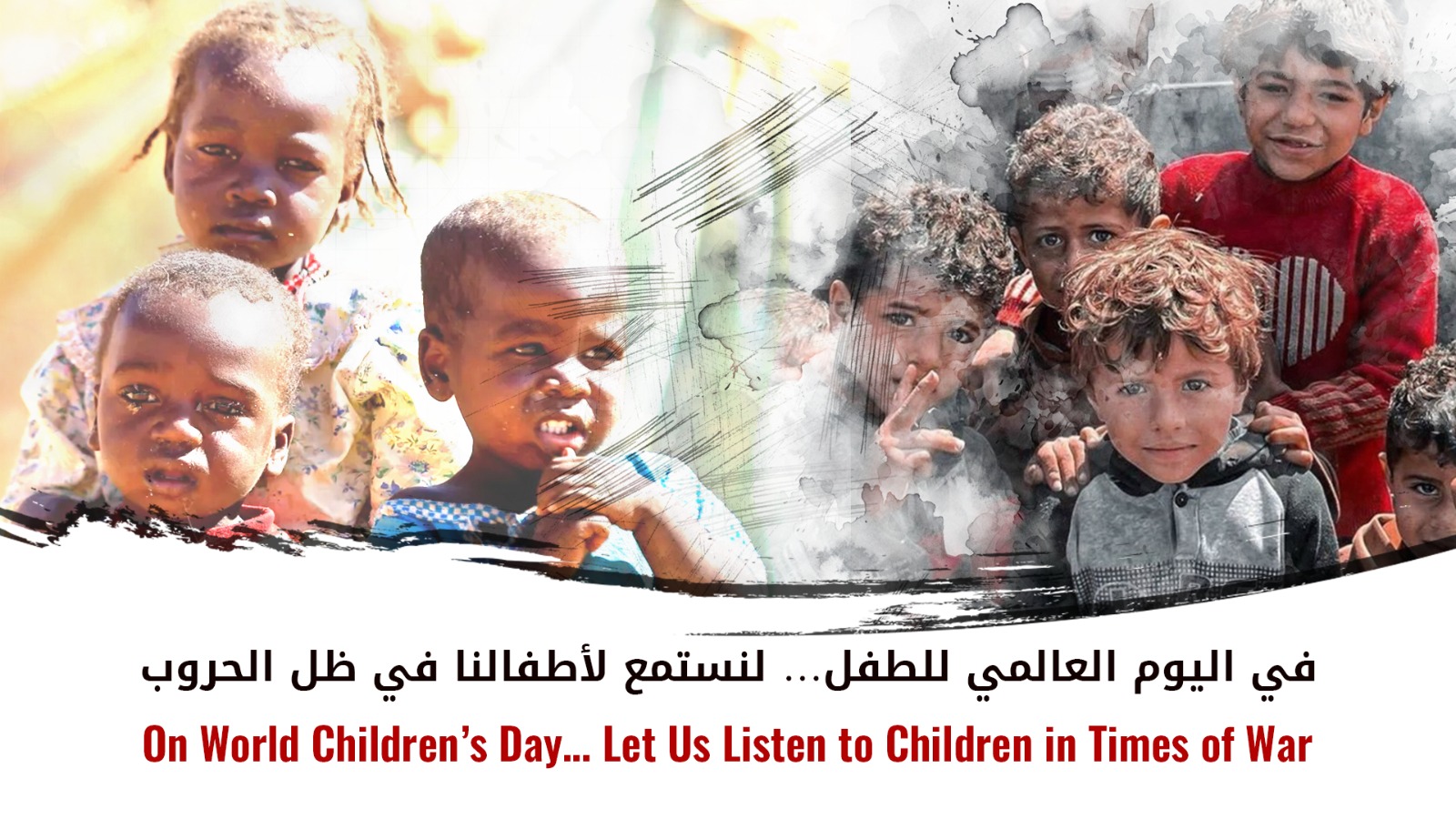As the world marks World Children’s Day, millions of children living in areas of war and conflict continue to face the gravest violations of their basic rights. Under this year’s theme, “My Day, My Rights,” children in Palestine, Sudan, and Yemen remain among those paying the highest price for years of protracted crises. Their suffering is not merely numbers or statistics; it is the lived reality of children deprived of safety, education, health, and dignity. On this day, our moral and humanitarian responsibility is renewed, to listen to them, defend their rights, and turn our words into real and tangible commitments.
Children’s Voices from Palestine, Sudan, and Yemen
World Children’s Day, which commemorates the adoption of the Convention on the Rights of the Child on November 20, reminds us that every child wakes up with rights that are non-negotiable: the right to protection, to education, to health, and to be heard. Yet the harsh realities in countries affected by armed conflict reveal a profound gap between these rights and the daily experiences of children.
Palestine
International reports indicate that more than 20,000 children have been killed in the Gaza Strip over 23 months of war — an average of one child every hour.
Additionally, 87.7% of school buildings have been damaged or destroyed, halting education and depriving hundreds of thousands of children of their fundamental right to learn and feel safe.
Amid this large-scale devastation, Palestinian children call for an immediate end to violence, secure access to humanitarian assistance, and the restoration of their rights to life, education, and dignity.
Sudan
Sudan is facing one of the world’s worst humanitarian crises. UNICEF has documented more than 10,065,329 internally displaced people as of August 2025, including millions of children.
Over 15,256,000 children require urgent humanitarian assistance, while 610,000 children under the age of five suffer from life-threatening severe acute malnutrition.
Estimates also indicate that total internal and cross-border displacement has exceeded 15 million people.
Sudanese children are calling for safety, food, healthcare, education, and safe corridors that protect their lives.
Yemen
After a decade of war, children in Yemen continue to face overlapping crises: severe acute malnutrition, system-wide collapse of health and education services, and the spread of preventable diseases.
Millions struggle daily to survive in what the United Nations describes as one of the most neglected humanitarian emergencies worldwide.
A Call to Listen… and a Call to Act
This day is an opportunity to renew our commitment to children and to understand how their rights are violated or taken from them in contexts of war and conflict. Meeting their demands for justice, safety, and dignity requires responsible global action, real accountability for those who violate children’s rights, and a reorientation of humanitarian responses to match the actual needs on the ground.
Activating localization in humanitarian action is essential for ensuring responses that are more effective, sustainable, and capable of reaching the most vulnerable children.
To Fulfill the Rights and Demands of Our Children, Collective Action Is Essential
- Immediate cessation of violence and protection of children from the direct impacts of conflict.
• Safe, unobstructed access to humanitarian assistance and essential services.
• Continuous access to education, healthcare, and psychosocial support.
• Ensuring the safety of children and their families through secure corridors for evacuation or return.
• Accountability for all violations of children’s rights and an end to impunity.
• Strengthening the role of local communities through activating localization in humanitarian response.
• Enabling children to express their views and ensuring their voices are heard in decisions that affect their lives.
In Conclusion
Defending the rights of every child — particularly those whose childhoods have been shaped by war — is not an option. It is a collective, moral, and humanitarian duty.
Their rights are our responsibility… and their future is a trust we must all uphold.



